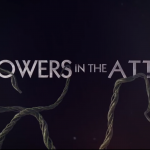Note: This is the third post in CAPC’s coverage of Stephenie Meyer’s Twilight Saga. Check out our previous posts on Twilight and New Moon. This post focuses on Eclipse. Next up: a first-hand dispatch from the Breaking Dawn release party, which undercover agent Carissa Smith will be attending in disguise as a teenager (just kidding about that last part . . . sort of).
Twilight, the first novel in Stephenie Meyer’s bestselling series, surprised me by being well-written. Eclipse, the third volume, surprised me by dealing with very painful and complex situations in a mature way. Twilight and New Moon both reminded me powerfully of what it was like to be a teenager; Eclipse reminded me of what it’s like to be an adult in a fallen, yet glorious world.
Bella Swan manages to make a mess of things in Eclipse, a mess that would still be messy even if vampire Edward Cullen and werewolf Jacob Black were just two normal human boys in love with the same girl. Bella’s actions—mostly due to her own lack of self-knowledge—end up hurting both Edward and Jacob, but each of them is quick to point out his own guilt in the tangled situation. Edward, as usual, overwhelms Bella with his understanding and unconditional forgiveness. Even Jacob, whose reactions are usually less mature, rushes to blame himself instead of her.
“Not you, too,” Bella groans. “It is my fault. And I’m so sick of being told it’s not.”
Jacob responds, incredulously, “You want me to haul you over the coals?”
“Actually . . . I think I do,” Bella says.
It’s one of my favorite “truth” moments in the Twilight series, because it illustrates why grace (ultimately God’s grace, but human forgiveness as well) cannot be cheap. Grace means nothing unless you first realize your own guilt, your own true status as a monster. (Bella has a moment, after she’s unfairly used Edward’s own guilty feelings to manipulate him, of epiphany: “I wondered if I was a monster. Not the kind that he [Edward] thought he was, but the real kind. The kind that hurt people. The kind that had no limits when it came to what they wanted.”) And you don’t really feel forgiven by other people unless you’re sure that they, too, have first recognized the true harm you’ve done—otherwise, it’s willful blindness on their part, not forgiveness.
Of course, part of what Bella is also struggling with here is the difficulty of accepting grace and forgiveness when they’re offered—another very real human experience. Yes, folks, there’s a level of emotional and even spiritual complexity in the Twilight Saga that has nothing to do with Edward Cullen’s dreamy eyes.
Though I enjoyed Twilight, the first novel in the series, I did feel that the love portrayed therein was a bit gooey and naïve. New Moon was less so, but, as I previously mentioned, the characters’ actions felt contrived to match the plot of Romeo and Juliet. Eclipse develops some of the emotional consequences of the actions taken in New Moon, and does so in a way that significantly complicates Bella’s notions of love.
On Stephenie Meyer’s web site, one of the FAQs about Eclipse (in regard to Bella’s realization that, in some ways, she loves Jacob in addition to Edward) reads, “Don’t you believe in true love anymore? What happened to blacken your soul, woman??” Meyer replies, “First of all, let me say that I do believe in true love. But I also deeply believe in the complexity, variety, and downright insanity of love. A lucky person loves hundreds of people in their lives, all in different ways, family love, friendship love, romantic love, all in so many shades and depths. I don’t think you lose your ability—or right—to have true love by loving more than one person. In part, this is true because you never love two people the same way. Another part is that, if you’re lucky, you learn to love better with practice. The bottom line is that you have to choose who you are going to commit to—that’s the foundation of true love, not a lack of other options.”
Whoa! Commitment, not “fate” or “first sight,” is where true love starts? Radical! And right. I appreciate that Meyer has allowed the books’ definition of love to grow along with Bella’s—and hopefully the reader’s, too.
For Edward and Bella, it seems (SPOILER ALERT!), that commitment will involve marriage at the ripe ages of 17 and 18, respectively. To Edward, who was born in 1901, their youth doesn’t seem terribly unnatural. For Bella, however, it’s a big stumbling block—not because she at all doubts that she wants to be with Edward for the rest of her life (and what she thinks is beyond), but because it’s embarrassing. She doesn’t want to be thought of as “that girl,” the one who gets married right out of high school. Bella’s mother, married young herself and soon divorced, has drilled it into Bella’s head: “smart people took marriage seriously. Mature people went to college and started careers before they got deeply involved in a relationship.”
Those are definitely the cultural assumptions I was raised on—I even scorned my peers who got married right out of college. Since then, though, I’ve seen that people seem to be ready for major life transitions at different ages. And for some—gasp!—college might not be a necessary, or even right, path. Bella had to mature a lot before really being ready to marry Edward, especially by dealing with her feelings for Jacob. The other big way in which she’s grown, though, is realizing how important a wedding ceremony—which she personally dreads—will be in helping her family and friends feel confident about her decision (though they won’t know about her intention to become a vampire soon thereafter). In other words, she’s realized that her decisions about love aren’t just about her wants and needs—they’re about her whole community of loved ones as well.
Finally, because in Eclipse Bella comes face-to-face with several “newborn” vampires, she now fully comprehends the potential consequences of her decision to become a vampire: “newborns” have an all-consuming thirst for human blood that will take immense effort for her to restrain. Of course, it may not actually come to that, because I’d like to think that Meyer has something more interesting up her sleeve than simply letting Bella become a vampire—but I’m glad to know that Bella is more mature, more ready for both marriage and vampiric immortality.











